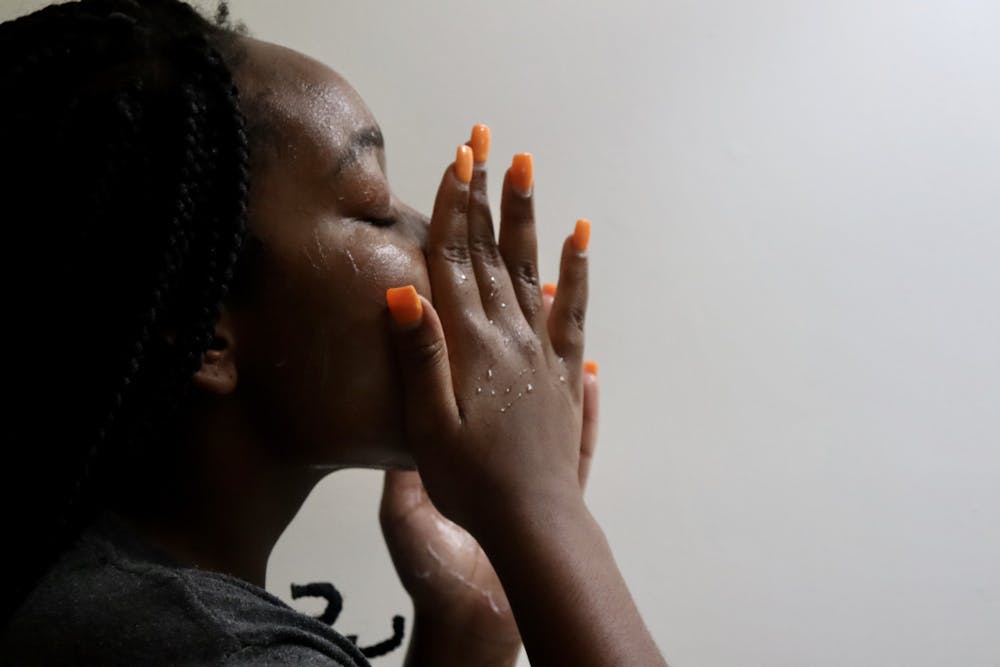After a long walk from campus and the removal of the mask, the mirror reflects one more pimple that wasn’t there before.
“Definitely we see a lot more skin problems on the face lately,” said Stephanie Lai, a dermatologist at Dermatology Specialists of Alabama - Auburn.
One of the issues has been skin irritation around the mouth through redness and, sometimes, eczema-related symptoms.
There has also been an increase in mask-related acne. She said this is partly because of the inclusion the mask creates which can cause breakouts to occur more frequently.
“Inclusion [is] not being able to allow the skin to breathe,” she said.
Lai said those who don’t have a history of developing acne are less likely to develop mask-related acne than those who find themselves liable to acne, such as teenagers.
People prone to acne likely have more sebum, which is a facial oil, she said. Excess build up of sebum can develop into breakouts.
Lai said wearing a mask all day, especially when your profession demands for you to do so, increases the amount of the time the skin must be inclosed which increases the likelihood of skin irritation.
When someone has excess sebum or sweat, it can sink into his or her follicles, also called pores. This can develop into comedo, more commonly known as whiteheads and blackheads.
“If we have too much irritation, that will cause the comedo to inflame so that would cause the acne,” Lai said.
To prevent mask-related skin issues, Lai said to make sure to wash your face every morning.
“A lot of people that we see only wash their face at nighttime,” she said.
Washing the face in the morning, washes off the sebum that may have built up on the face during the night.
She said also putting on a light moisturizer can help the skin get less irritated through the day while one is wearing a mask.
“Usually the cloth mask, the 100% cotton mask, are better than the disposable ones,” Lai said. “This is because the material itself is better [for the skin].”
She said she encourages people to not wear makeup if they know they will be wearing a mask because it creates more stress on the skin.
At the end of the day, or when you are done wearing a mask for that day, she said to rewash the face and put on some moisturizer.
However, it is also important to wash or dispose of the mask at the end of each day, Lai said.
“Wash the face mask every day if people are wearing the cloth mask, and if they are wearing the disposable, the surgical mask, then definitely use a new one every day,” Lai said.
While the mask’s outside may have respiration droplets, she said the inside also holds facial oil, saliva and sweat that occurred during the day.
A new and clean mask each day will keep from old particles irritating the skin the next day.
Lai said finding a time and place during the day to take off the mask can help with skin health as well.
“In terms of the surgical mask, I would recommend someone to remove it at least during the lunch hour and just try to let their face rest, and the skin breathe a little bit,” she said.
This can also be useful for the cloth mask, she said.
Lai said to try to take advantage of creams and remedies that may help with acne or irritation but if conditions are worsening, seek a medical professional.
Do you like this story? The Plainsman doesn't accept money from tuition or student fees, and we don't charge a subscription fee. But you can donate to support The Plainsman.

Abigail Murphy, senior in journalism with minors in history and women and gender studies, is the operations managing editor at The Auburn Plainsman.





